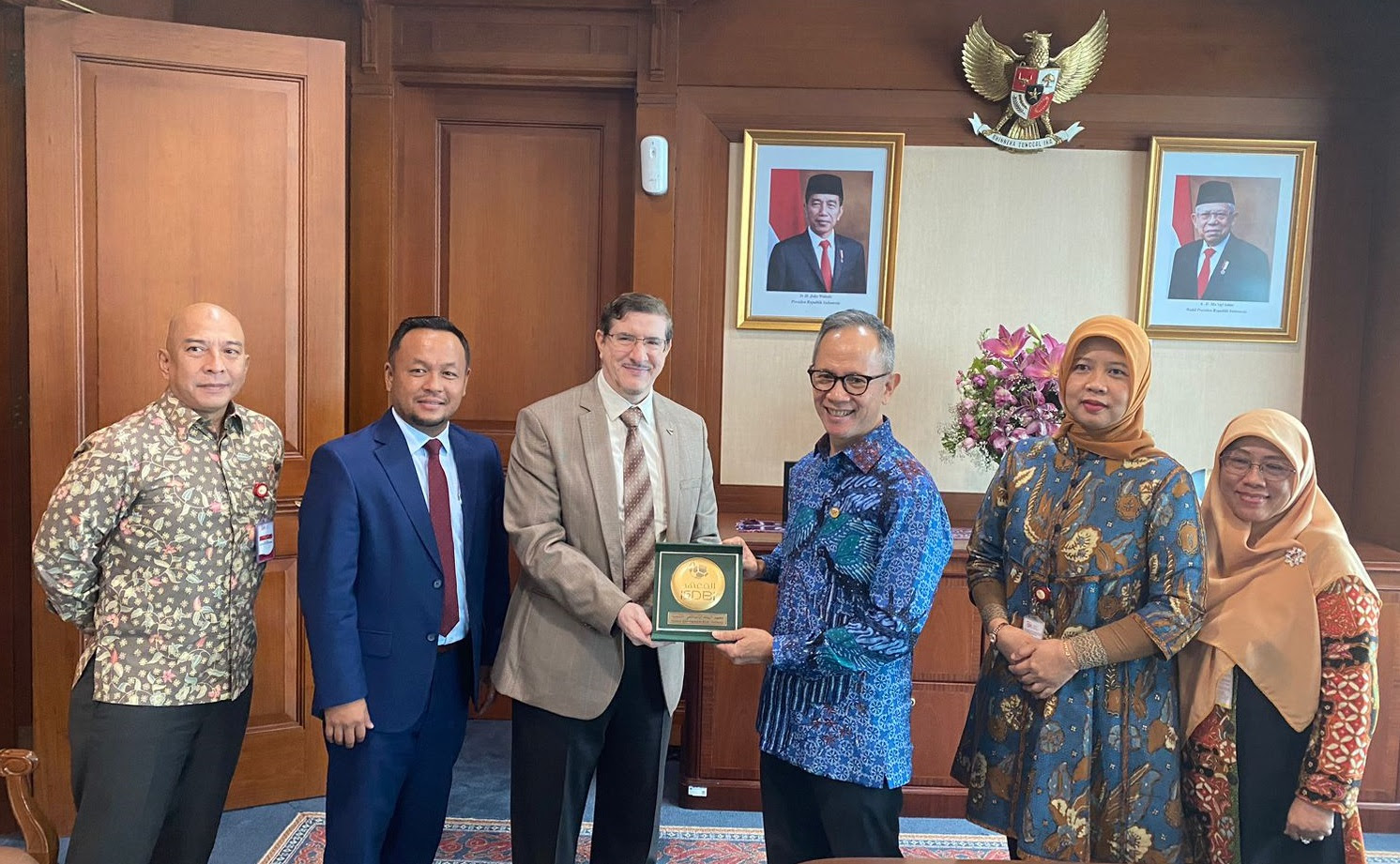|
||||||||
|
|
Category: Middle East/Asia
-
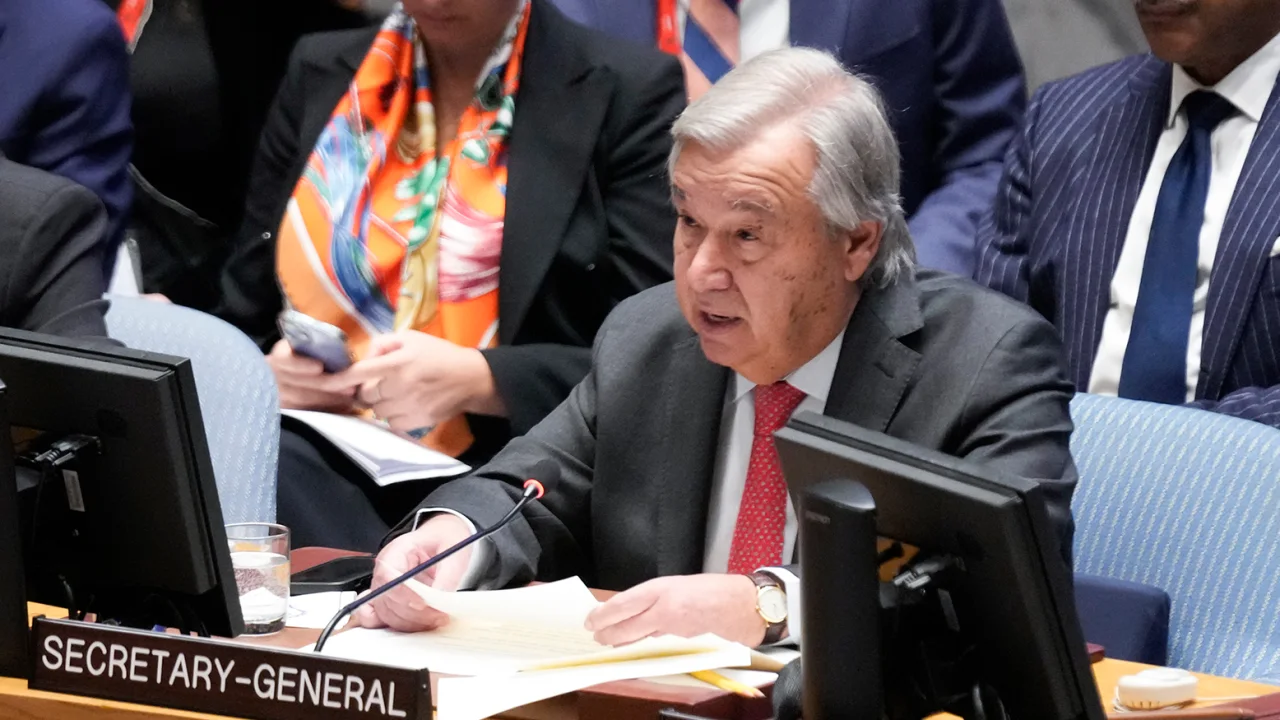
About the Unending Israeli-Palestinian Problem
……….As Israel Slams UN Chief Scribe
Mohammed A. Abu
The Organization of Islamic Cooperation (OIC) has condemned in strongest terms the attack against the United Nations Secretary-General, Antonio Guterres by Israel as “unethical, illegal and an act of political blackmail” in view of the fact that, Israel is the occupying force.
The OIC in an official statement said, it considered the Secretary-General’s speech at the Security Council to be in line with his duties and responsibilities derived from international law, international humanitarian law, as well as from the charter and resolutions of the United Nations.
The OIC also expressed its profound respect to the Secretary-General for the role of the United Nations agencies and their tireless efforts at all levels to stop the war crimes being perpetrated by the Israeli occupation against the Palestinian people, their land, and holy sites.
What Guterres Said
At a Security Council meeting, Guterres called for a humanitarian ceasefire on Tuesday amid the deepening crisis in Gaza, and told the Security Council that “clear violations of international humanitarian law” are being witnessed.
He called Hamas’ October 7 murder and kidnap rampage “appalling,” and said “nothing can justify the deliberate killing, injuring and kidnapping of civilians, or the launching of rockets against civilian targets.”
“It is important to also recognize the attacks by Hamas did not happen in a vacuum,” Guterres said. “The Palestinian people have been subjected to 56 years of suffocating occupation. They have seen their land steadily devoured by settlements and plagued by violence; their economy stifled; their people displaced and their homes demolished.”
“But the grievances of the Palestinian people cannot justify the appalling attacks by Hamas. And those appalling attacks cannot justify the collective punishment of the Palestinian people. Excellencies, even war has rules,” he added.
Israeli Response
The UN Chief Scribe’s condemnation of Hamas in no mean terms while also alluding to the fact that attack did not happen in vacuum angered Israeli Foreign Minister Eli Cohen, who the CNN reports,was in the chamber as Guterres spoke. “In what world do you live?” said Cohen. “Definitely, this is not our world.”
Writing on social media later, Cohen said that “after the October 7th massacre, there is no place for a balanced approach. Hamas must be erased off the face of the planet!”
Israel’s ambassador to the United Nations, Gilad Erdan, called on Guterres to resign, saying he had “expressed an understanding for terrorism and murder.”
Then, on Wednesday, Erdan said his country will block visas for United Nations officials. It had already rejected an application by the UN Under-Secretary-General for Humanitarian Affairs and Emergency Relief Coordinator, Martin Griffiths, Erdan told the Israeli Army Radio channel.
“It’s time we teach them a lesson,” added Erdan.
Guterres Sets the Record Straight
In an effort to “set the record straight,” Guterres said Wednesday he was “shocked by misinterpretations by some of my statement yesterday in the Security Council – as if I was was justifying acts of terror by Hamas.”
“This is false. It was the opposite,” he told reporters, restating his condemnation of the October 7 attacks.
Historical Origin of the Israeli-Palestinian Problem
A UN document,”Origins and Evolution of the Palestine Problem: 1917-1947 (Part I)”, notes that, the question of Palestine was brought before it ,shortly after the end of the Second World War.
“The origins of the Palestine problem as an international issue, however, lie in events occurring towards the end of the First World War. These events led to a League of Nations decision to place Palestine under the administration of Great Britain as the Mandatory Power under the Mandates System adopted by the League.
“In principle, the Mandate was meant to be in the nature of a transitory phase until Palestine attained the status of a fully independent nation, a status provisionally recognized in the League’s Covenant, but in fact the Mandate’s historical evolution did not result in the emergence of Palestine as an independent nation.
“The decision on the Mandate did not take into account the wishes of the people of Palestine, despite the Covenant’s requirements that “the wishes of these communities must be a principal consideration in the selection of the Mandatory”.
“This assumed special significance because, almost five years before receiving the mandate from the League of Nations, the British Government had given commitments to the Zionist Organization regarding the establishment of a Jewish national home in Palestine, for which Zionist leaders had pressed a claim of “historical connection” since their ancestors had lived in Palestine two thousand years earlier before dispersing in the “Diaspora”.
The Balfour Declaration
These undertakings to the Zionist Organization were made known in a declaration issued by the British Foreign Secretary, Sir Arthur James Balfour, (whose name it has borne since):
“Foreign Office,
2 November 1917“Dear Lord Rothschild,
I have much pleasure in conveying to you on behalf of His Majesty’s Government the following declaration of sympathy with Jewish Zionist aspirations, which has been submitted to and approved by the Cabinet:
‘His Majesty’s Government view with favour the establishment in Palestine of a national home for the Jewish people, and will use their best endeavours to facilitate the achievement of this object, it being clearly understood that nothing shall be done which may prejudice the civil and religious rights of existing non-Jewish communities in Palestine or the rights and political status enjoyed by Jews in any other country.’
I should be grateful if you would bring this declaration to the knowledge of the Zionist Federation.
Yours sincerely,
Arthur James Balfour”.“The pivotal role of the Balfour Declaration in virtually every phase of the Palestinian issue cannot be exaggerated. The Declaration, which determined the direction of subsequent developments in Palestine, was incorporated in the Mandate. Its implementation brought Arab opposition and revolt.
” It caused unending difficulties for the Mandatory in the last stages pitting British, Jews and Arabs against each other. It ultimately led to partition and to the problem as it exists today. Any understanding of the Palestine issue, therefore, requires some examination of this Declaration which can be considered the root of the problem of Palestine” the UN report notes.
The Countless UN Security Council Resolution on Palestine
The UN’s beef, is also got to do with Israel’s constant disrespect and disregards for numerous Security Council Resolutions on Palestine aimed at bringing lasting peace between the two neighbors The numerous Security Council Resolutions include but not limited to the following:
1.UN Security Council Resolution 242(1967) on the establishment of independent dual states of Israel and Palestine to co-exist peacefully but not one state trying to swallow up the other.
2. Israeli Practices Affecting the Human Rights of the Palestinian People in the Occupied Palestinian Territory, including East Jerusalem-GA Resolution (A/RES/77/247,30-December 2022
3.The Right of Palestinian People to Self Determination-GA Resolution(A/RES/77/208)-15-Dec-2022
4.Human rights and international humanitarian law, Legal issues, Occupation
A/RES/77/2475.Israeli Settlements in the OPT, including East Jerusalem, and the Occupied Syrian Golan – GA Resolution(A/RES/77/126)-12-deC-2022
6.Covenant: Economic Social and Cultural Rights, Economic issues, Energy, Environmental issues, Golan Heights, Human rights and international humanitarian law, Inalienable rights of the Palestinian people, Natural resources, Occupation, Water–A/RES/77/187
-

Leveraging Islamic Finance to address Impending Economic Slowndown
The Accounting and Auditing Organization for Islamic Financial Institutions (AAOIFI) together with the Islamic Development Bank Group (IsDB), represented by IsDB Institute (IsDBI), is set to host the 18th edition of its annual Islamic banking and finance conference under the auspices of the Central Bank of Bahrain.
The two-day conference will be held physically at the Crowne Plaza, in Kingdom of Bahrain, on 29-30 November 2023, with the theme “Strategies for the Impending Economic Slowdown and a Post Oil World: Through Economic Diversification and Leveraging Islamic Finance”.
The two-day conference will feature keynote addresses from dignitaries and policymakers, as well as, seven panel discussion sessions. The panel discussions will examine the role of Islamic finance and Islamic fintech in diversifying economic activity in the Muslim countries, challenges and opportunities resulting from Inflation and high benchmark rates, and the use of Islamic finance in the development of infrastructure for climate change mitigation.
In addition, the challenges of Sukuk Shari’ah compliance and governance and Islamic finance accounting for hyperinflation will be discussed.
AAOIFI is also organising the first-ever ‘Capacity Building Week’, which will begin on 28 November 2023 and run through 04 December 2023, after conference on 29-30 November 2023. The five-day celebration of human capital development in Islamic finance is expected to attract more than 200 trainees from at least 30 countries to participate in 17 concurrent workshops led by around 25 master trainers.
-
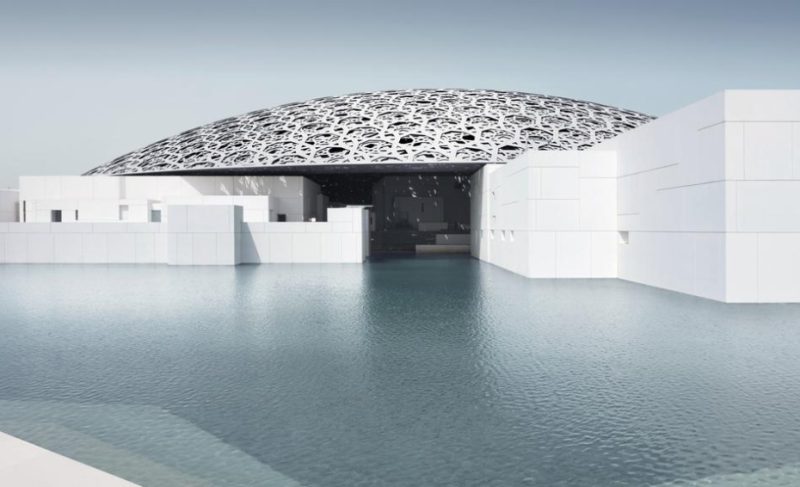
Louvre Abu Dhabi welcomes over 200,000 visitors in summer
Louvre Abu Dhabi received more than 200,000 visitors between June and August 2023, a record peak in summer visitation since the museum’s opening in 2017, reaffirming Abu Dhabi’s position as an internationally renowned cultural hub.
The visitor and community experience remains a key priority for the Louvre Abu Dhabi, given its status as one of the UAE’s main cultural attractions.
The museum witnessed a surge in attendance numbers compared to previous summers, as individuals and families alike engaged with artworks, explored immersive exhibitions, and sought inspiration from the museum’s architecture.
The emirate welcomed 2.4 million hotel guests in the first half of the year, a 34 per cent increase compared to the same period a year ago, according to the Department of Culture and Tourism – Abu Dhabi (DCT Abu Dhabi).
Louvre Abu Dhabi’s summer offerings
To engage the community over the summer period, Louvre Abu Dhabi opened its latest Children’s Museum exhibition Picturing the Cosmos to the public in July inspired by the human fascination with the cosmos.The museum hosted an interactive live call from space with Emirati astronaut Sultan Al Neyadi in August as part of the exhibition’s programming. The exhibition welcomed over 30,000 visitors in just two months.
Louvre Abu Dhabi’s summer offerings also focused on participatory learning and engagement, as young adults took part in the Art Lab, where they collaborated with UAE-based artists in engaging workshops.
The museum welcomed teachers and children for a free exploratory visit ahead of the new school year.
Visitors were able to enjoy a wealth of community activities such as free yoga on International Day of Yoga, which saw yoga enthusiasts gather under the iconic museum’s dome.
“Louvre Abu Dhabi stands as a beacon of cultural diversity and artistic expression, and we take immense pride in our role as a global platform for cross-cultural dialogue. As we continue to strive for excellence, we remain dedicated to enhancing the visitor experience, fostering a deeper connection between our guests and the rich tapestry of human creativity,” said Manuel Rabaté, director of Louvre Abu Dhabi.
The museum unveiled its collection of new loans and acquisitions this summer. The collection is on display in the permanent galleries.
These included new acquisitions such as Les Marionnettes by Jean-Honoré Fragonard (France, 1775 – 1778), Femme à la mandoline (Mademoiselle Léonie assise) (France, 1911) by Pablo Picasso, and more.
Visitors were treated to the exceptional loans from Musée du Louvre, Musée national des Châteaux de Versailles et de Trianon, Musée du quai Branly – Jacques Chirac, Musée d’Orsay, Centre Pompidou – Musée national d’art moderne, Musée d’Archéologie Nationale – Saint Germain en Laye, Musée des Arts décoratifs, and the National Museum of Archaeology in Valleta, Malta.
Upcoming offerings
Louvre Abu Dhabi has bolstered its position as a destination that visitors can look forward to seeing by organising a diversity of events and exhibitions that target different interests and age groups, cementing its position as the first universal museum in the Arab world.The museum will host two new exhibitions in the coming months as part of its ongoing 2023/24 cultural season. These include Cartier, Islamic Inspiration and Modern Design, and Louvre Abu Dhabi Art Here.
It recently opened Letters of Light to the public, which will run until January 2024. These exhibitions will be complemented by programming and activities.
Read: Abu Dhabi to welcome more than 24 million visitors this year
SOURCE
GULF BUSINESS -
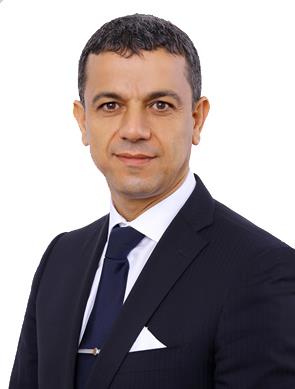
About Proportionality as Principles Expands in Banking
About Proportionality as Principles Expands in Banking
CIBAFI Offers Basel Committee some Insights
By: Mohammed A. Abu
The Manama, Kingdom of Bahrain based General Council for Islamic Financial Institutions(CIBAFI) has formally Submitted Comments to the Switzerland based Basel Committee on Banking Supervision (BCB regarding its Consultative Document on “Revisions to the Core principles for effective banking supervision (“Core Principles”) an official statement disclosed in Manama, Thursday.CIBAFI noted according to the Press Release, that even though the updated “Introduction to Core Principles” improves comprehension of proportionality, banks still however, express concerns about the way proportionality is applied, particularly as the principles expand.
Proportionality, CIBAFI also noted, needs to evolve alongside emerging trends and new banking models like Neo Banks and Fully Digital Banks. It is advisable to conduct additional research to uncover specific considerations for applying these principles in the context of these innovative banking models.
The CIBAFI release signed by its Secretary General Abdellah Belatik said, “We remain at your disposal should you need any further clarifications”, adding, “The General Council for Islamic Banks and Financial Institutions takes this opportunity to renew to the Basel Committee on Banking Supervision (BCBS) the assurances of its highest respect and consideration”.CIBAFI is an international body representing Islamic financial institutions globally, who offer financial services and products complying with Islamic rules and principles (Shariah).
CIBAFI acts as the voice of the Islamic finance industry, and our members comprise more than 130 Islamic banks and non-bank financial institutions, both large and small, from 34 jurisdictions
-
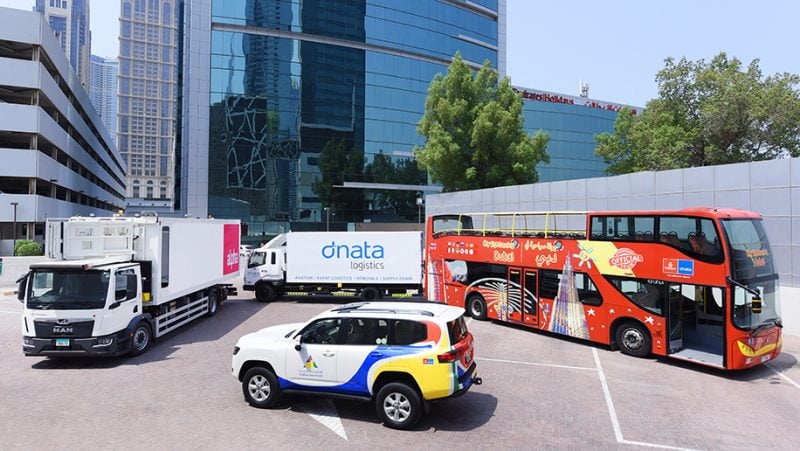
dnata to cut CO2 emissions by 80 per cent in the UAE
Air and travel services provider dnata has taken steps to reduce its environmental footprint across its operations in the UAE.
dnata’s group brands dnata Logistics, Arabian Adventures, Alpha Flight Services and City Sightseeing have switched their vehicles to operate using a biofuel blend.
dnata says that the move will save 80 tonnes of Carbon Dioxide (CO2) emissions per year, equivalent to over 320,000km driven by an average petrol-powered car.
dnata Logistics has switched 31 of its trucks to run on a biofuel blend at its Dubai-based hub. Providing multimodal freight forwarding, logistics, supply chain and road transport services, its trucks cover up to a total 217,000km per month. The move saves almost 35 tonnes of CO2 emissions per year, the equivalent of eight petrol-powered cars driven for one whole year.
City Sightseeing Dubai, a joint venture with dnata Travel Group, operates three tour routes, aiding viewing of Dubai’s top attractions, through the use of 21 open-top, biofueled buses. These cover an average 76,000km per month, removing over 32 tonnes of CO2 emissions each year – the equivalent of the electricity use of four average homes for 12 months.
Alpha Flight Services (Alpha), dnata’s inflight catering joint venture, has already switched five landside vehicles to biofuel blend, and is also in the process of transitioning all of its Sharjah-based airside catering trucks. Alpha now sends its used cooking oil to the biofuel manufacturer and once recycled, it is then reused within its vehicles. One litre of oil recycled into biofuel avoids the emissions of 3kg of CO2, a reduction of 92 per cent compared to diesel fuel use. Alpha’s vehicles cover over 27,000km per month, supporting the company’s catering operations that create over 25,000 meals a day. As a result of the initiative, Alpha will save seven tonnes of CO2 emissions per year, the equivalent of charging over 850,000 smartphones.
Arabian Adventures has also switched the generators at its desert safari camps to a biofuel mix. Arabian Adventures is saving almost five tonnes of CO2 emissions per year as a result of the initiative, equating to 1987 litres of diesel.
Steve Allen, CEO of dnata Group, said, “The introduction of biofuel to a diverse range of our UAE businesses is an important step in our ongoing journey. It offers a simple and effective method of cutting emissions throughout the fuel lifecycle, without requiring any changes to equipment. We will continue to invest in our operations, including large-scale infrastructure solutions, to further enhance our sustainability performance and achieve our green operations targets.”
dnata sustainability initiatives
Dnata’s latest biofuel initiative is part of its efforts to reduce its carbon footprint and waste to landfill by 20 per cent by 2024 in line with its two-year green operations strategy.
In June 2022, dnata said that that it would invest $100m in green operations in two years to enhance its environmental efficiency globally.
The company offers ground handling, cargo, travel, catering and retail services in over 30 countries across six continents. More than 15 per cent of the company’s global fleet is now electrified.
SOURCE
GULF BUSINESS
-
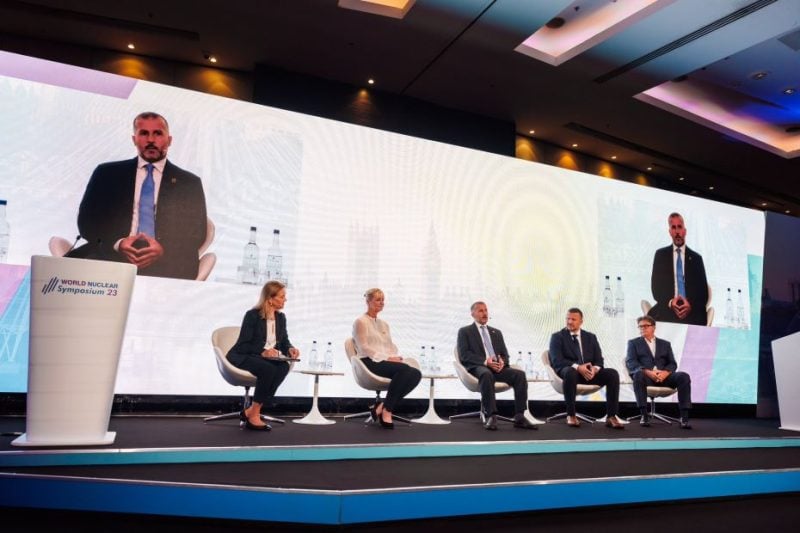
Nuclear energy to supercharge global clean energy transition: ENEC CEO
ENEC’s CEO highlighted how nuclear can sustainably power energy intensive industries such as datacenters, which utilise 4-5 per cent of total global power supply
Mohamed Ibrahim Al Hammadi, managing director and CEO of the Emirates Nuclear Energy Corporation (ENEC), showcased the role of nuclear technology in decarbonising hard-to-abate sectors during the World Nuclear Symposium 2023, which took place from September 6-8 in London, UK.
Al Hammadi along with Dr Angela Wilkinson from the World Energy Council, Todd Noe, director of Nuclear Technologies Engineering at Microsoft, and Mikal Boe, CEO of Core Power, participated in the discussion session titled ‘Achieving End-users Decarbonization Goals with Nuclear Energy’.
During the discussion, Al Hammadi highlighted how nuclear technology can sustainably power energy intensive industries. These include artificial intelligence (AI) and data centres.
These centres alone utilise 4-5 per cent of total global power supply, and this will only grow as greater digitalisation occurs.
UAE is harnessing the potential of nuclear energy, says ENEC CEO
“The UAE is a success story for harnessing the potential of nuclear energy to create a range of clean products through the Barakah Nuclear Energy Plant. Today, we are supporting the green industrialisation by providing clean electricity and enabling Clean Energy Certificates. They play an important role in decarbonising businesses and helping unlock global ESG funds, which are valued at $30tn and forecast to double by 2030,” the ENEC CEO explained.
During the discussion, Al Hammadi also stated how essential nuclear energy is to net zero, and how it can supercharge the energy transition. With urgent global collaboration, nuclear energy can be scaled up to meet energy challenges.
He also mentioned that through recognising nuclear energy as a key clean source for decarbonising and ensuring its prominence in conversations at events such as COP28, the industry can obtain the necessary support to have the impact required to achieve net zero.
The development of the Barakah Nuclear Energy Plant in the UAE is a catalyst for innovation and R&D in new areas, including small modular reactors which are a key part of the future growth of ENEC, alongside other next-generation technologies.
Nuclear energy and the Barakah Plant are bridges to future fuels such as clean hydrogen and other clean molecules.
Other topics covered at the symposium included ‘Fueling Our Nuclear Future: The Nuclear Fuel Report 2023,’ ‘People First: Leading the Industry to Success,’ ‘Investing in Nuclear,’ and ‘Optimizing Plant Life Performance (in collaboration with WANO).’
SOURCE
GULFBUSINESS
